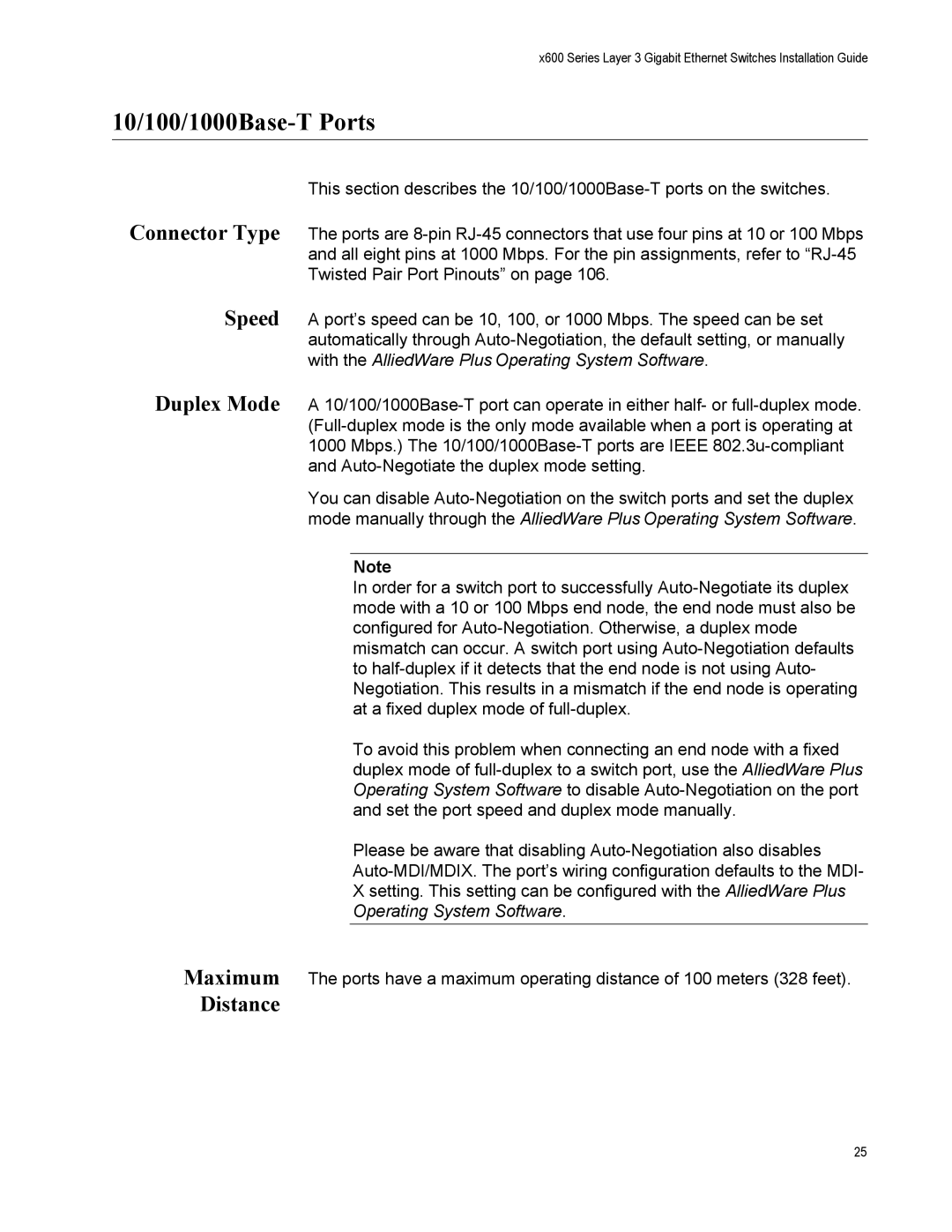This section describes the 10/100/1000Base-T ports on the switches.
The ports are 8-pin RJ-45 connectors that use four pins at 10 or 100 Mbps and all eight pins at 1000 Mbps. For the pin assignments, refer to “RJ-45 Twisted Pair Port Pinouts” on page 106.
A port’s speed can be 10, 100, or 1000 Mbps. The speed can be set automatically through Auto-Negotiation, the default setting, or manually with the AlliedWare Plus Operating System Software.
A 10/100/1000Base-T port can operate in either half- or full-duplex mode. (Full-duplex mode is the only mode available when a port is operating at 1000 Mbps.) The 10/100/1000Base-T ports are IEEE 802.3u-compliant and Auto-Negotiate the duplex mode setting.
You can disable Auto-Negotiation on the switch ports and set the duplex mode manually through the AlliedWare Plus Operating System Software.
Note
In order for a switch port to successfully Auto-Negotiate its duplex mode with a 10 or 100 Mbps end node, the end node must also be configured for Auto-Negotiation. Otherwise, a duplex mode mismatch can occur. A switch port using Auto-Negotiation defaults to half-duplex if it detects that the end node is not using Auto- Negotiation. This results in a mismatch if the end node is operating at a fixed duplex mode of full-duplex.
To avoid this problem when connecting an end node with a fixed duplex mode of full-duplex to a switch port, use the AlliedWare Plus Operating System Software to disable Auto-Negotiation on the port and set the port speed and duplex mode manually.
Please be aware that disabling Auto-Negotiation also disables Auto-MDI/MDIX. The port’s wiring configuration defaults to the MDI- X setting. This setting can be configured with the AlliedWare Plus Operating System Software.
The ports have a maximum operating distance of 100 meters (328 feet).

